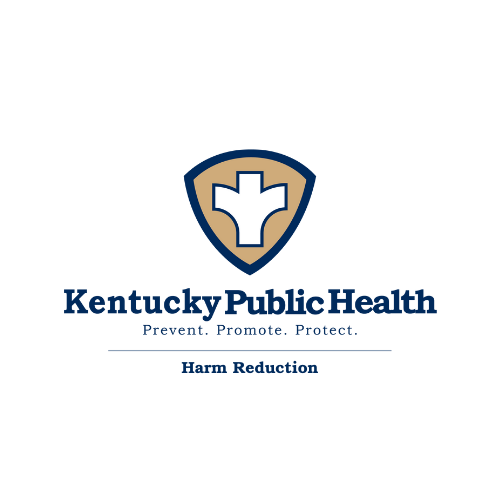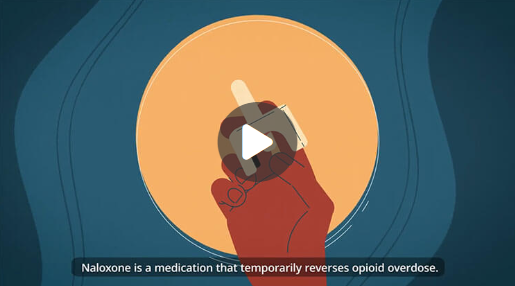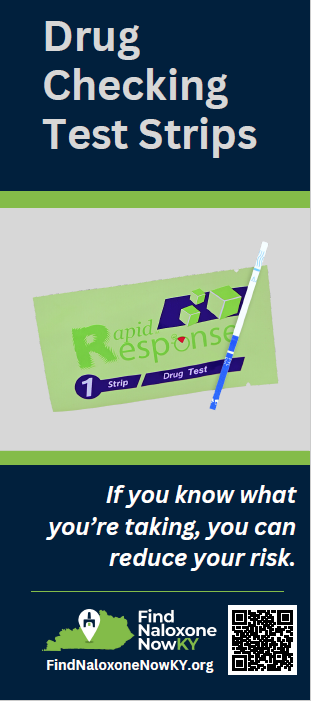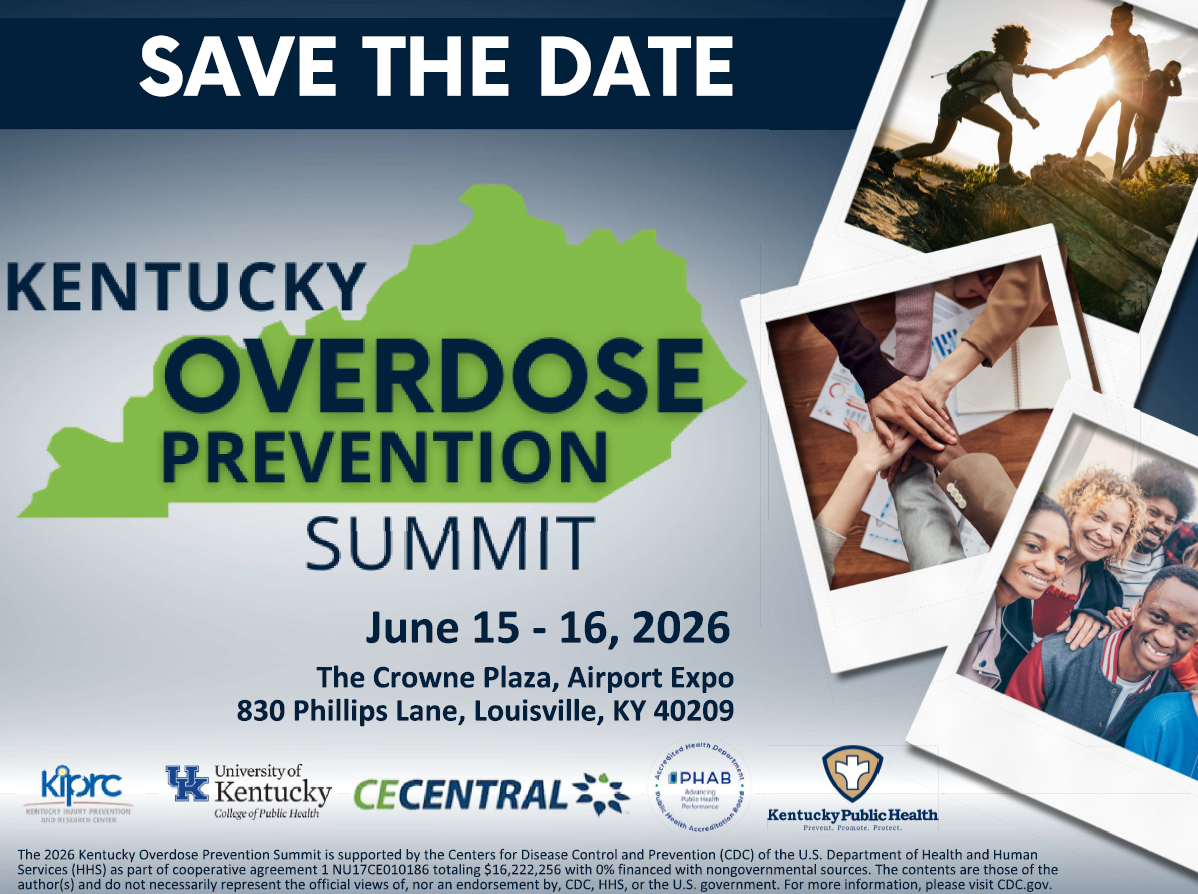ODMAP Drug Overdose Alerts
Date: February 13, 2026
Between February 12, 2026 and February 13, 2026, 32 suspected nonfatal drug overdose emergency medical services (EMS) encounters were reported in Jefferson County through the Overdose Detection Mapping Application System (ODMAP).
Date: February 11, 2026
Location: Hardin County
Between February 7, 2026 and February 10, 2026, eight suspected nonfatal drug overdose EMS encounters were reported in Hardin County through ODMAP. This is an unusually high number of suspected nonfatal drug overdose encounters in this period. As a result, people who use drugs in or around this area should take caution to protect themselves.
ODMAP is used to monitor suspected drug overdose encounters in EMS data to identify possible clusters of drug overdoses in Kentucky. Drug overdose alerts are generated when a county shows an unusual increase in nonfatal drug overdose-related EMS encounters in a 24-hour period.
For additional resources please view the Kentucky Harm Reduction Resources section available on this webpage.
What is Harm Reduction?

Harm reduction is an important component of Kentucky's comprehensive approach to addressing substance use through prevention, treatment, and recovery — and empowering people to reach their own goals, through incremental change. Harm reduction is a practical and transformative approach that incorporates community centered public health strategies to empower people who use drugs, and their families. Harm reduction emphasizes engaging directly with people who use drugs to prevent overdose and infectious disease transmission; improve physical, mental, and social wellbeing; and offer low barrier options for accessing health care services. Harm reduction services provide an opportunity to reach people who aren't otherwise accessing healthcare services by providing naloxone, wound care kits and drug testing strips. Harm reduction incorporates a spectrum of strategies that meet people where they are ― on their own terms and may serve as a pathway to additional health and social services, including additional prevention, treatment, and recovery services.
Harm reduction services are provided free of cost at many local health departments in Kentucky as established in
Senate Bill 192. For more information regarding legality, please see
KRS 218A.
Naloxone Availability and Overdose Response Education
What is naloxone?
Naloxone is a medication that temporarily reverses opioid overdose. It works by blocking the effects of opioids on the brain. To find out where you can receive naloxone at no-cost, visit www.FindNaloxoneNowKY.org.
An opioid overdose happens when someone takes too much of an opioid. They become unconscious and their breathing begins to shut down. If an overdose is not reversed, it's likely that this person will stop breathing and die. That's why it's important to give naloxone quickly when you suspect an opioid overdose.
How is naloxone administered?
Knowing how to administer naloxone properly is just as important as recognizing the signs and symptoms of an opioid overdose. Because individuals have different learning styles, www.FindNaloxoneNowKY.org offers access to the trainings in a variety of formats:
- a thorough, five-step training that can be printed on a business card,


How is naloxone distributed throughout Kentucky?
Strategic planning for naloxone distribution focuses on getting naloxone to people likely to witness overdose in the communities where it's needed most. See Kentucky's 2025-2026 Naloxone Saturation Plan to learn more about this approach.
Drug Checking Test Strips
 Drug checking strips can help you understand what is in a substance before you use it. Fentanyl and nitazenes are extremely potent opioids that may be added to unregulated drugs like heroin, methamphetamine, cocaine and pills. Fentanyl and nitazenes increase the risk of overdose. Xylazine, medetomidine and benzodiazepines are sedatives that may be added to unregulated drugs.
Drug checking strips can help you understand what is in a substance before you use it. Fentanyl and nitazenes are extremely potent opioids that may be added to unregulated drugs like heroin, methamphetamine, cocaine and pills. Fentanyl and nitazenes increase the risk of overdose. Xylazine, medetomidine and benzodiazepines are sedatives that may be added to unregulated drugs. Xylazine can cause skin wounds that may be difficult to heal. Although the effects of these sedative drugs are not reversed by naloxone, these drugs are often mixed with opioids. Test strips can detect the presenceof these substances, but they aren’t perfect. False negative and false positive results are possible. You can still overdose even when the strip is negative.
Xylazine can cause skin wounds that may be difficult to heal. Although the effects of these sedative drugs are not reversed by naloxone, these drugs are often mixed with opioids. Test strips can detect the presenceof these substances, but they aren’t perfect. False negative and false positive results are possible. You can still overdose even when the strip is negative.
Individuals should follow these instructions closely to get the most accurate results.
Harm Reduction Outreach Events

Hosting an event?
Request our services
 KDPH Harm Reduction Outreach Services
KDPH Harm Reduction Outreach Services
Kentucky Overdose Prevention Summit

The Kentucky Overdose Prevention Summit is a free learning opportunity for Navigators such as Peer Navigators, Certified Peer Recovery Specialists, Case Managers, Patient Navigators, Community Health Workers, Persons with Live Experience, and other individuals who link people who use drugs to harm reduction resources, substance use disorder treatment, and/or recovery support services. This event affords many the chance to discuss the state of harm reduction in their region and exchange ideas regarding evidence-based-best practices to saving lives in the Kentucky.
The Kentucky Overdose Prevention Summit is organized by the Kentucky Department for Public Health in collaboration with the Kentucky Injury Prevention and Research Center. It is supported by the Centers for Disease Control and Prevention (CDC) of the U.S. Department of Health and Human Services (HHS) as part of cooperative agreement 1 NU17CE010186 totaling $16,222,256 with 0% financed with nongovernmental sources. The contents are those of the author(s) and do not necessarily represent the official views of, nor an endorsement by, CDC, HHS, or the U.S. government. For more information, please visit CDC.gov.

2026 Kentucky Overdose Prevention Summit Attendee Registration Form
2026 Kentucky Overdose Prevention Summit Exhibitor Registration Form
Previous Harm Reduction Summit Session Recordings
Previous Harm Reduction Summit Endured Materials
First Responders-Comprehensive Addiction and Recovery Act Grant
 In 2023, the Kentucky Department for Public Health was awarded the First Responders- Comprehensive Addiction and Recovery Act (FR-CARA) grant by The Substance Abuse and Mental Health Services Administration. The goal of the FR-CARA grant in Kentucky is to expand naloxone training and dispensing for first responders throughout rural counties and to increase awareness for ongoing harm reduction activities and personal safety measures for opioid exposures.
In 2023, the Kentucky Department for Public Health was awarded the First Responders- Comprehensive Addiction and Recovery Act (FR-CARA) grant by The Substance Abuse and Mental Health Services Administration. The goal of the FR-CARA grant in Kentucky is to expand naloxone training and dispensing for first responders throughout rural counties and to increase awareness for ongoing harm reduction activities and personal safety measures for opioid exposures.
See if your county and agency are eligible:  FR-CARA Fact Sheet.pdf
FR-CARA Fact Sheet.pdf
Harm Reduction Expansion Projects
Each year, the Kentucky Department for Public Health provides funding to partnering Local Health Departments to expand harm reduction efforts such as increasing hours of operation, hiring peer support specialists, hosting outreach events, implementing media campaigns, and purchasing supplies.
 FY25 KORE Harm Reduction Expansion Project.pdf
FY25 KORE Harm Reduction Expansion Project.pdf
 FY25 KDPH PPE Project.pdf
FY25 KDPH PPE Project.pdf
Want to be stay in touch with KDPH Harm Reduction?
Request to be added to the contact list here.